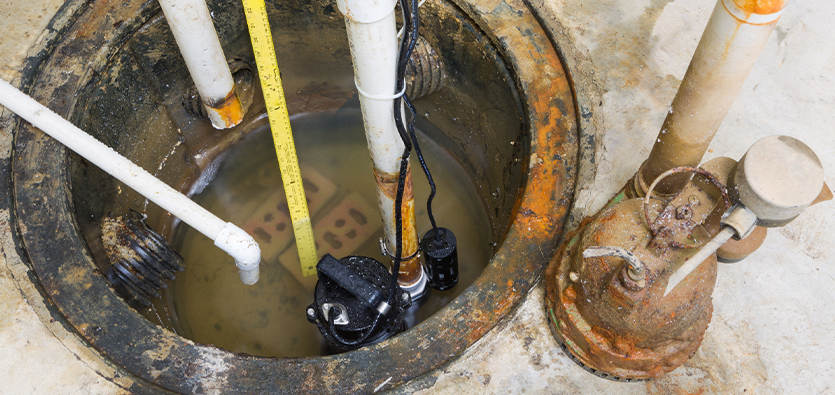
There is nothing more soothing than a little thunderstorm. As the rain gently patters on your windows and thunder rumbles. But when water starts to leak into your basement, even tranquil sounds can cause terror. If your sump pump is installed properly by a skilled plumbing service provider, your basement will remain dry, and your home will remain in good condition.
A sump pump is a valuable item for homes. But how can you know whether you require one? More significantly, what do you have to do to ensure proper operation? Keep reading to find out everything there is to know about sump pumps and why you might need one.
What Is A Sump Pump?
A sump pump is a mechanical device put in a sump pit at the lowest level of your home, such as the basement or crawl area. This little but critical improvement to your home helps to keep your basement from flooding.
This is how it goes: the pump is often idle, only waiting for a call to action. The soil in the area of your home becomes swamped when it starts to rain severely. Unused groundwater collects in the sump pit, which starts to fill up with water. This engages the float switch on the sump pump and starts the pump.
Also Read: Why Is My Home Plumbing Leaking?
Can My Home Survive Without A Sump Pump?
Sump pumps have several advantages, but certain properties require them more than others. If any of the following statements are true, we advise installing a sump pump:
You’ve Previously Had Water Issues: A sump pump should be installed if your basement has already flooded or you consistently have excessive basement moisture levels.
Your House Is Situated In A Flood-Prone Area: Groundwater levels are more likely to rise after monsoon downpours, snowstorms, and spring runoff in areas with poor drainage, low-lying dwellings, and residences surrounded by hills.
You Reside In A Region Where There Is A Lot Of Rain Or Snow: some of our regions receive far more moisture than is acceptable. Basements in this area are highly vulnerable to floods, in contrast to arid conditions.
You’ve Got A Finished Basement: Even if your home isn’t classified as a high-risk site, consider installing a sump pump to protect your subterranean living area.
Sump Pump Maintenance
After you’ve installed your sump pump, take a few simple measures to ensure it’s in good operating order. This is especially crucial in the spring, when there is snowmelt and rainfall, or when severe weather is expected.
- Make sure the pump is upright. If the device is inclined to one side, the float arm may get stuck and stop working properly.
- Fill your pot with water using a bucket. Have the pump fixed if it doesn’t start right away.
- Occasionally remove your submersible pump from the pit to clean the bottom grate if you have one.
- Make sure your pump’s pipes are properly fastened and positioned to discharge at least 20 feet from your base.
- Look for any obstructions in the vent hole that can stop the flow of water through your outlet tubes.
How Often Should Sump Pumps Be Replaced?
You may have a sump pump, but it might be broken or older than six years. Sump pumps typically last 10 years, although they may need to be changed earlier if they are of poor quality or have had to pump a lot of water. It’s crucial to call in a specialist to assess any potential sump pump problems.
You can install a sump pump yourself if you’ve established that it is necessary for protection against moisture and mildew. Think about hiring a residential plumbing specialist to install your sump pump for you and assist you in deciding what size is optimal for your scenario.
About Dunn Rite Plumbing & Gas
Since its establishment, Dunn Rite Plumbing & Gas has assisted the greater Edmonton region with a variety of residential, commercial, and industrial plumbing services. We offer all services relating to your plumbing requirements, from fixing your pipes to helping with building and restoration projects. We can discover a unique solution to any situation as a full-service residential, commercial, and industrial contractor.
Looking for a professional plumber for a routine plumbing checkup? Contact us now!